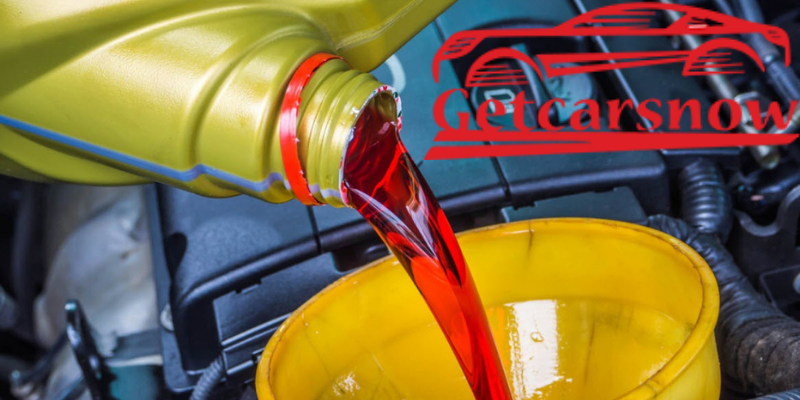
BMW 318i Engine – The Complete Guide
The BMW 318i engine is a 2.0-liter, turbocharged, 4-cylinder petrol engine put in an executive saloon. It has a 2.0-liter 4-cylinder turbo motor. The 318i’s early throttle response is a little slow, and even when it delivers maximum torque (162lb-ft between 1250 and 4000rpm). Acceleration isn’t as impressive as BMW’s 8.9-second 0-62mph. The engine’s slowness has significant advantages. It’s far quieter than any of the diesel, and no matter how hard you rev it, it never feels stressed. It’s also incredibly smooth, except for a few tremors through the gear lever and pedals at low revs under load.
The 318i was the typical entry-point to the 3 Series range, available only as a sedan and powered by a 1.5-liter turbocharged three-cylinder mated to a six-speed manual or an eight-speed automatic transmission. BMW offered two variants at the time which are the 3 Series 318i M-Sport and the 3 Series 318i Luxury Line.
Table of Content
- Fuel Consumption of BMW 318i Engine
- Problems of BMW 318i
- Coolant leak of BMW 318i
- Clogged Cooling System of BMW 318i
- Wrong Kinds of Coolant of BMW 318i
- Water Pump Failure of BMW 318i
- Prevention of BMW 318i Engine From Overheating
- Conclusion
Fuel Consumption of BMW 318i Engine
BMW 318i engine has a combined fuel consumption of 6.4 l/100 kms, with 8.5 l/100 kms in the city and 5.2 l/100 kms on the highway. With a fuel usage of 7.9 l/100km – 36 mpg, UK – 30 mpg and a 0 to 100 km/h time of 10.4 seconds with a top speed of 128 206 km/h, the car can go from 0 to 100 km/h in 10.4 seconds. The gasoline tank has a capacity of 63 liters, which means one may drive for up to 980 kilometers in the city and up to 1200 kilometers on the highway without refilling. The manufacturer’s data has officially published which says the real-world MPG/consumption for the 318i M Sport Steptronic is 8,5 lt/100km. In real-world settings and during test drives, it burns 48 percent more fuel than factory figures.
Problems Of BMW 318i
Plastic fittings, clamps, and reservoirs abound in the BMW 318i. All of which are prone to cracking, resulting in coolant leaks and de-pressurization. The rear shock mount reinforcement is on the top of the car’s interior mount. The original design emphasizes the bottom of the mount, where the car’s weight rests, but ignores the top. As a result, unloading the suspension on the other side of the shock tower could be dangerous.
The oil filter housing gasket, like many other soft engine gaskets, is prone to failure. The heat cycles created by the engine and oil impurities will cause this gasket to harden over time, leading it to leak. If you observe oil near the oil filter on the driver’s side of the engine block, this gasket is leaking. The low oil indicator on the dash may also glow, depending on the size of the leak. The belt has slipped off and jammed into the main seal behind the crank pulley in certain cases due to this leak.
Vibrations in the driveline that can be felt throughout the vehicle could indicate a worn flex disc and support bearing on the drive shaft. The flex disc’s primary role is to absorb vibration, and as it wears, it transfers those vibrations throughout the vehicle’s chassis.
Coolant leak of BMW 318i
The temperature of your BMW’s engine must be regulated, which necessitates the use of coolant. During the summer, the engine needs to work more to maintain the proper temperature. It’s especially dangerous to spring a coolant leak in these conditions. In the system, the air gets inside, creating a load or gathering of air pressure that blocks the way of coolant flow. One of the most common causes of engine overheating is insufficient coolant flow or coolant leaks; without coolant, the engine cannot maintain its proper temperature.
Clogged Cooling System of BMW 318i
As previously said, if coolant cannot flow properly through your BMW’s engine, it won’t be able to help maintain the temperature. A broken thermostat, debris, or natural accumulation are all common reasons for clogged cooling systems. A polluted or mostly blocked cooling system will eventually become unable to circulate coolant, which causes the engine to get overheat.
Wrong Kinds of Coolant for BMW 318i
Believe it, various cars need different types of coolant. Also, depending on the climate where we live in, we’ll need a specific coolant. It’s crucial to be sure you’re using the right type of coolant for your BMW’s engine. Otherwise, it won’t be the proper viscosity for your car’s unique engine and you can run into overheating troubles. This information is usually found in your owner’s handbook. But, you can also contact the BMW customer service or service center directly. BMW too sells their own coolant, which we may buy from BMW’s store.
Water Pump Failure of BMW 318i
The cooling system’s water pump is an important component. The pump is responsible for maintaining proper coolant circulation; when it wears out and needs to be changed, it’s critical to do it as quickly as possible. Otherwise, you’ll almost surely experience overheating.
Prevention of BMW 318i Engine From Overheating
It takes regular, daily maintenance and care to keep BMW’s engine from overheating. Following the prescribed maintenance plan for your specific BMW can help guarantee that the engine and other components of your BMW remain in good working order. Checking coolant levels, making sure you don’t see any leaks, and following through with scheduled maintenance procedures will dramatically lower the likelihood of your engine overheating.
Conclusion
Every car has some features as well as problems but the BMW 318i Engine is powered by a 2.0-liter engine that produces 154bhp and 250Nm of torque. It’s still plenty of power for day-to-day use. The automobile is smooth, quiet, and adequately accelerative when driven lightly. Yes, it’s a little less powerful than the 320i, but in 80% to 90% of driving circumstances, one won’t notice the difference. The ride is also quite well-organized. The lowered M Sport suspension on the test car we drove a few years ago was far too harsh, to the point where BMW had to retune the suspension for later model years. This car is just ideal – it’s forgiving on bumps while yet being capable of winding routes.



